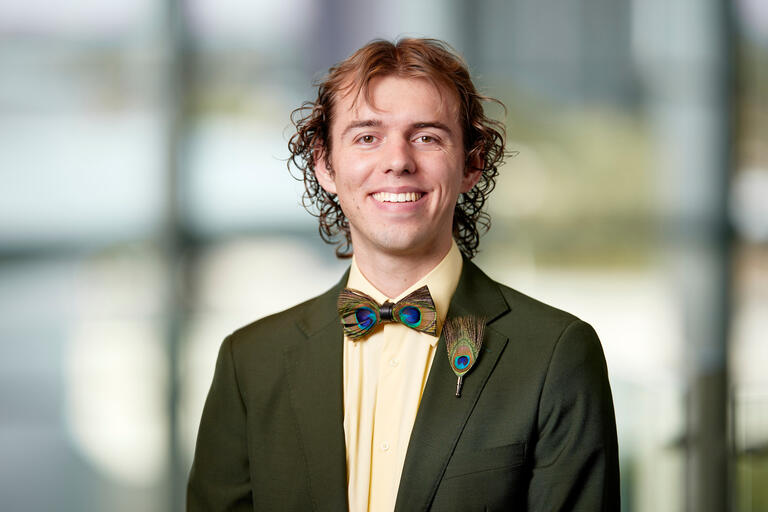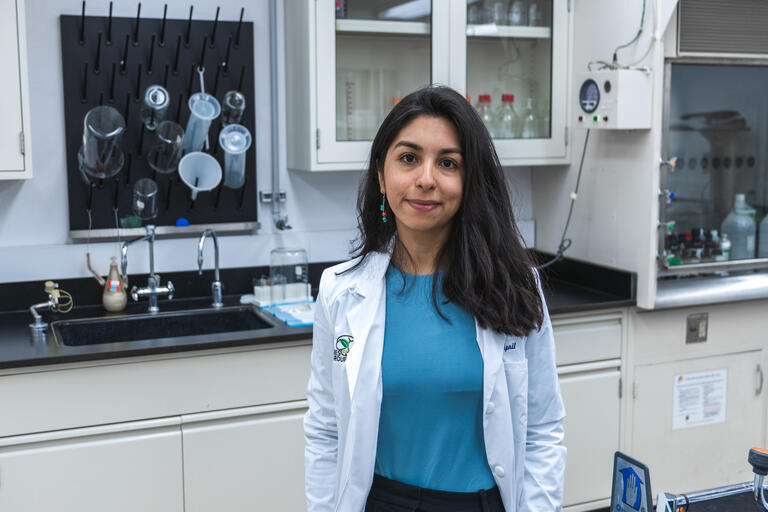For Diane Chase, UNLV’s executive vice president and provost, the past year has been a fast-paced series of achievements and challenges.
She came to UNLV last year from the University of Central Florida – the nation’s second largest university – where she served as a top administrator and prolific archaeologist, excavating one of the largest Maya archaeological sites since 1985. Here she has embraced her role as UNLV’s chief academic officer and has become an ardent supporter of the university’s Top Tier strategic plan to join the nation’s top 100 universities.
During this time, the new School of Medicine has been accredited and has opened with a charter class of 60 students. Chase also has been here for other major university events and student accomplishments, such as the presentation of the final 2016 Presidential Debate at the newly renovated Thomas & Mack Center.
Chase has helped promote UNLV’s research and creative activity, which has seen increasing recognition nationally and internationally. UNLV is one of just 13 universities worldwide selected for Solar Decathlon 2017, a U.S. Department of Energy contest that challenges students to design, build, and operate homes that are energy-efficient, innovative, and affordable. Research awards rose 7.5 percent to about $49 million in fiscal year 2016. Additionally since her arrival, UNLV has enjoyed a swell of support and contributions from community partners and private donors. The university received a record $93 million in new gifts and pledges this past year.
In the year ahead, Chase says she plans to keep UNLV in high gear, accelerating research and creative endeavors, ramping up support for faculty and staff to ensure student achievement, and advancing the mission of UNLV as a partner in economic development and cultural vitality for Southern Nevada.
What’s been the biggest difference between UNLV and your former institution, the University of Central Florida?
The pace of things happening at UNLV is tangibly different. Both universities have grown fast, but UNLV has energy and drive that’s almost insatiable. There are amazing events and accomplishments every day, every week, and every month. So much so, that I think it’s easy for us to lose sight of how remarkable this institution is and how unusual it is to have all those successes, because it seems normal here.
What are some of those successes?
The list of successes is pretty extensive. We have seen progress in all of our Top Tier goals: welcoming our new medical school students, increased private support for our programs, improvements in student success initiatives, and increased faculty retention.
Our students are achieving national honors. Our Latin Jazz Ensemble won the 2016 Downbeat Magazine Student Music Awards, and we had three students this academic year honored as Fulbright Scholars. Our faculty are developing new research partnerships. For instance, UNLV faculty and students are working with Lockheed Martin on NASA’s Orion program and space exploration projects as part of a five-year, $5 million collaboration through the Howard R. Hughes College of Engineering. Program rankings also are going up, as we saw with the Boyd Law School, which achieved its highest U.S. News & World Report ranking, jumping 16 spots to 67th among 198 accredited law schools. Additionally, Harrah Hotel College was named world’s best for hospitality and leisure management by QS World University Rankings, which highlight top-performing programs across the globe in 46 disciplines.
That said, many of the things we’re working on don’t have an easy list of boxes to check as complete because the goal is continuous improvement. For example, we’re making excellent progress on our student success initiatives aimed at retention, progression, and completion. The goal is to keep getting better.
Student success is not something that we’ll ever the check the box as “done.” Some things you can do quickly with the stroke of a pen, but for big initiatives — the ones that have the most impact on achieving our Top Tier goals — the process has to be collaborative. And that can take time.
Some changes we have been able to make more quickly are improvements to the hiring process. While things are not perfect, we have cut down the time to get hires approved. We are also working to communicate clearly and to be transparent in our actions.
What big initiatives are in the works for this year?
I expect the conversations we’ve had this past year about faculty success will start resulting in tangible changes. We spent the last year combing through the results of our first coache. It is conducted by a national consortium aimed at improving the work lives of faculty and staff. We've been putting the results in context through conversations with the Faculty Senate, with deans and chairs, and with other individuals through “Coffee with the Provost” events.
One thing that came through in this survey, and in conversations across campus, is that everyone wants the guidelines for promotion and tenure to be clearer, and that those guidelines must align to our Top Tier initiative. As an incoming provost, P&T (promotion and tenure) can be a third-rail topic — something you can really get in trouble with if you lack the history and context. But, when it came up over and over again, I realized that this concern needed to be addressed. So, this will be the year to collaboratively consider the issues and to better codify the process and expectations.
Something else I have heard from faculty is an interest in establishing a faculty center that focuses on faculty development. We are still fact finding — trying to gauge faculty interests and concerns — but are hoping to establish a faculty center by sometime the end of the fall 2017 semester.
Another thing that we’ll be working on is improving the ability of faculty to work across disciplines. One way we’re tackling that is through new hires aimed specifically at creating interdisciplinary clusters in health sciences, water and sustainability, and big data. We are also establishing an interdisciplinary initiative we call The Collaborative that is focused on educational attainment and we are looking at the possibilities that might arise from the various sports teams and venues coming to Las Vegas.
A number of new academic leaders have recently come on board, or soon will, including the deans of Sciences, Libraries, and Nursing, as well as a new chief diversity officer. What qualities did you look for in the successful candidates?
Each of the administrative leaders we brought on this year is creative, collaborative, and willing to listen. All have solid communication skills and experience that will help us take this already great institution to “the next level,” as well as help us work through impediments to faculty and/or student success. Importantly, each one was drawn to UNLV for the right reasons; they are excited about engaging in a place and with people who are different, daring, and diverse.
All of our administrative and faculty hires are precious — each one. So, we are selecting these hires to ensure that each will help us achieve our Top Tier goals.
What areas are being addressed for administrative faculty and classified staff?
There seems to be a perception that Top Tier applies mostly to research. Not so. It’s about being the best university we can be. And that requires attracting and retaining talented employees at all levels, giving them the tools to do their jobs, and making sure that they feel valued for their contributions.
This summer, the president formed a task force to look at the benefits for classified employees, particularly focused on grant-in-aid for education. Another task force is looking at the processes for providing salary increases to academic and administrative faculty, as well as other mechanisms for rewarding their hard work.
Now that you’ve been here a year, any advice for faculty and staff new to the university?
My recommendation is to get engaged with the campus community, meet with people within and outside your home unit, and don’t be afraid to ask questions. Any institution as large and complex as UNLV can leave people feeling constrained by the rules for doing things. It doesn’t matter if it’s about the bylaws, the hiring process, or purchasing a notebook — things can seem rigid. But what I’ve found is that if you pick up the phone before you start getting frustrated, you’ll find your way. The person on the other end of the call is almost always willing to talk through the issue with you.
What thought do you want to leave readers with?
UNLV is celebrating its 60th anniversary and that gives us the time to look back and to look forward. There’s a perception that UNLV has remained unchanged over time. I think it has the same heart, but the university has grown a lot in the past few decades. It is a stronger, better institution. I hope that our birthday celebration will be a time for the entire campus community to reflect on what we have already accomplished and how truly capable we are of achieving our ambitious goals.



